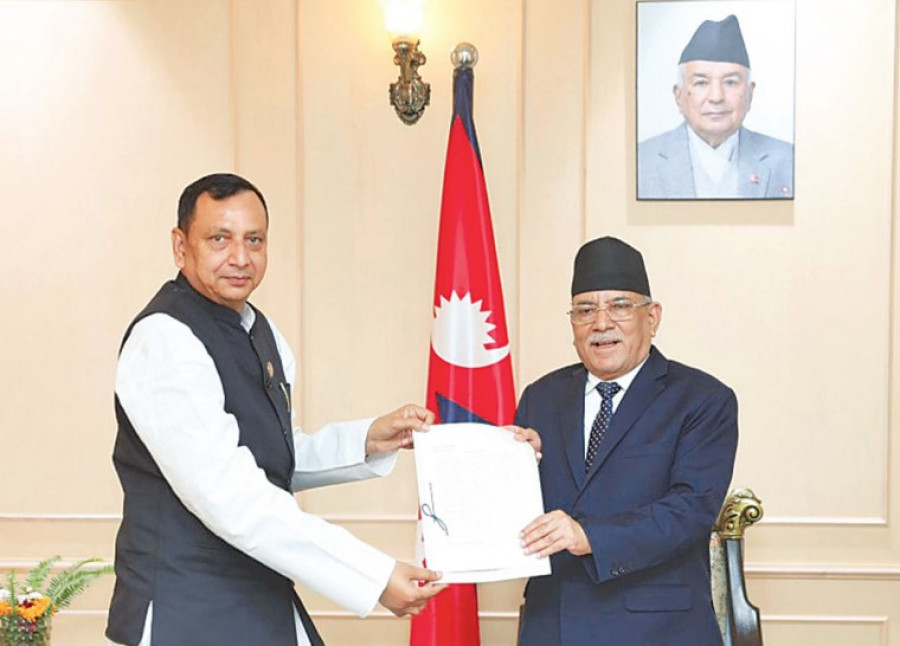National
All-party team from Madhesh memos prime minister on provincial powers
Leaders from other provinces throw their weight behind Madhes as it wrestles Singha Durbar for authority.
Post Report
A team of all-party representatives from Madhesh Province submitted a six-point demand to the prime minister with a 30-day ultimatum to implement them.
The team led by Saroj Kumar Yadav, chief minister of the Madhesh Province, has demanded an immediate start of the police adjustment process. It has asked the Dahal government to hand over the responsibility of managing the provincial police and its administration.
Though the federal parliament in August 2019 endorsed the Police Personnel Adjustment Bill and the bill to govern the operation, supervision and coordination of Nepal Police and provincial police forces, the federal government has shown reluctance to adjust the police to the provincial level. The adjustment Act authorises the federal government to assign a deputy inspector general (DIG) of Nepal Police to serve as the police chief of a province.
The federal government can transfer such police officers to other provinces or any departments of Nepal Police in consultation with the provincial government.
However, in the case of other personnel adjusted to provincial police forces, the relevant provincial official can transfer such personnel to any police unit within the province.
The Yadav-led team also demanded prompt passage of the Federal Civil Service Act. It said the federal government should issue the law through an ordinance if it is not possible to get it endorsed through the federal parliament immediately. The federal parliament remains prorogued.
Eight years since the promulgation of the Constitution of Nepal, the civil service Act is yet to be promulgated. The explicit responsibility to manage provincial police administration and provincial civil service rests with the provincial governments as per the statute.
Talking to the media after submitting the memorandum, Yadav said Prime Minister Dahal was receptive to their demands. “The prime minister said differences among the parties had delayed the adjustment process but he was serious about devolving the power to the provinces,” he said. “We hope the prime minister will abide by his commitment. If not, we will start Kathmandu-centric peaceful protests after the deadline completes.”
In addition to the police adjustment and provincial police, the representatives from Madhesh Province have also demanded the authority to lease out public lands and manage trusts (guthis).
The Madhesh government, backed by other provinces, has decided to protest against the federal government following the latter’s reluctance to allow provincial governments to set up their own police force and bureaucracy.
The first five years of the provincial governments passed by without their own police and civil services being set up. As the federal government continues to be indifferent even as the governments elected by the second provincial assemblies are about to complete their first year, they are up in arms to claim their constitutional powers.
Other provincial governments also have announced that they would join Madhesh leaders in their fight against the centralised mindset of the federal government. Talking to the Post on Wednesday, Santosh Kumar Pandey, internal affairs minister of Lumbini Province, said they will also participate in the Kathmandu-centric protest.
This is not the first time the provinces have organised against the centre to demand their constitutional rights. In an attempt to press the federal government on police adjustment and to resolve issues related to civil servants, internal affairs ministers of the seven provinces had issued a seven-point demand in July last year.
The Madhes provincial leaders also presented a memorandum to the earlier government led by Sher Bahadur Deuba. The chief minister and ministers even staged sit-in protests at their offices, to little effect.




 18.12°C Kathmandu
18.12°C Kathmandu













